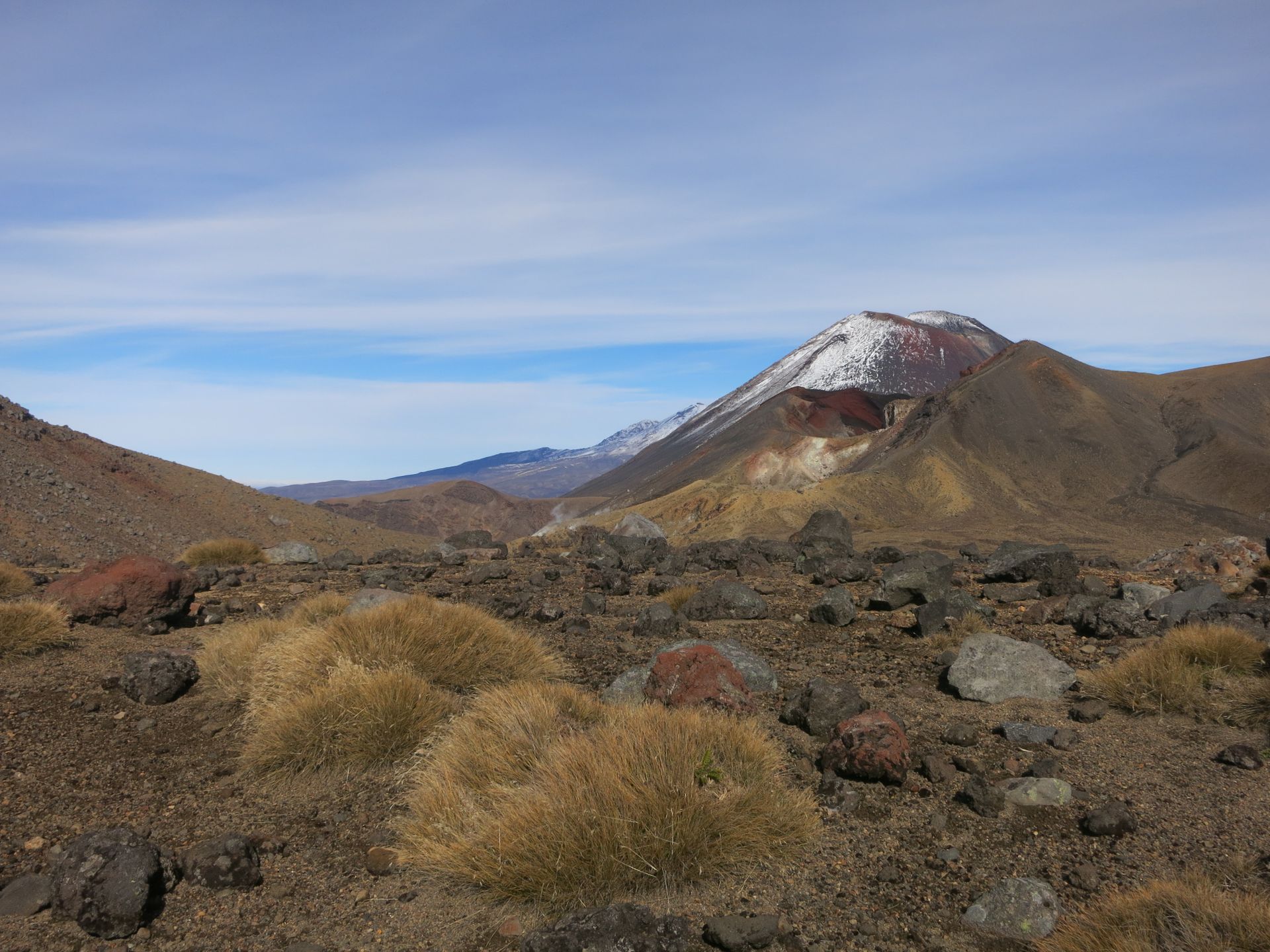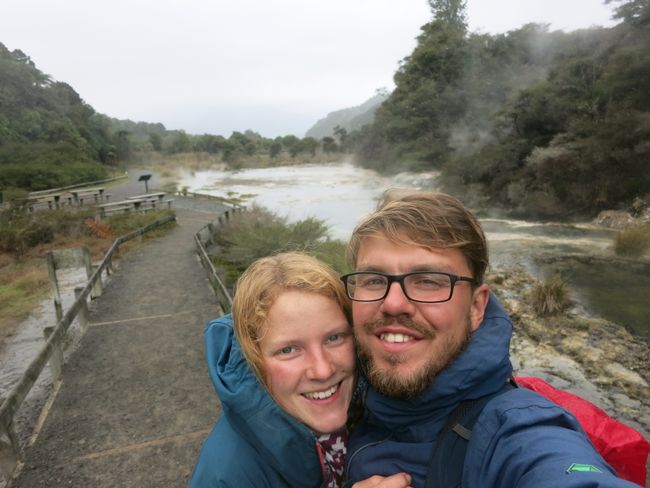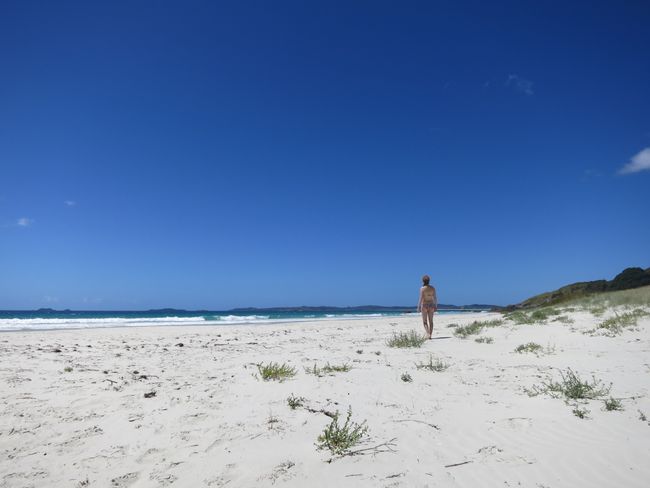It's worth investing something
Buga: 01.12.2018
Biyan kuɗi zuwa Newsletter
Helpful, Mr. F dropped us off in Kerikeri the next day and our journey continued north. An hour later and 70 km further north, we reached our next waypoint on the way to the northernmost, most spiritual point of the Maori - Cape Reinga.
The waypoint is called Taipa. Here we meet our second host family. This time it's a younger couple with a little daughter. As soon as we got off the bus, a young woman waved at us. Not only because of the recognition value of the profile pictures, but also because of the seemingly overwhelming number of people (except for Caro and me - 1 - ), contact was quickly established. Compared to the first time, it was already noticeably easier to start a conversation. Caro also slowly started to enjoy it, while Tim exchanged faces and sounds with his new neighbor in the bank, the 11-month-old daughter. After a 20-minute bumpy ride, we felt like we were in the middle of nowhere again. The family's house was right on the edge of the New Zealand bush. From the property, which had a steep slope, no other house was visible. On the way to the house, Bonny and Blade, the two large dogs of the family, scrutinized us, which we had to completely ignore. The reason for this is the acceptance and hierarchy, for which the family has its own understanding. Of course, it was extremely difficult for us to respect this, but we wanted to respect our hosts.
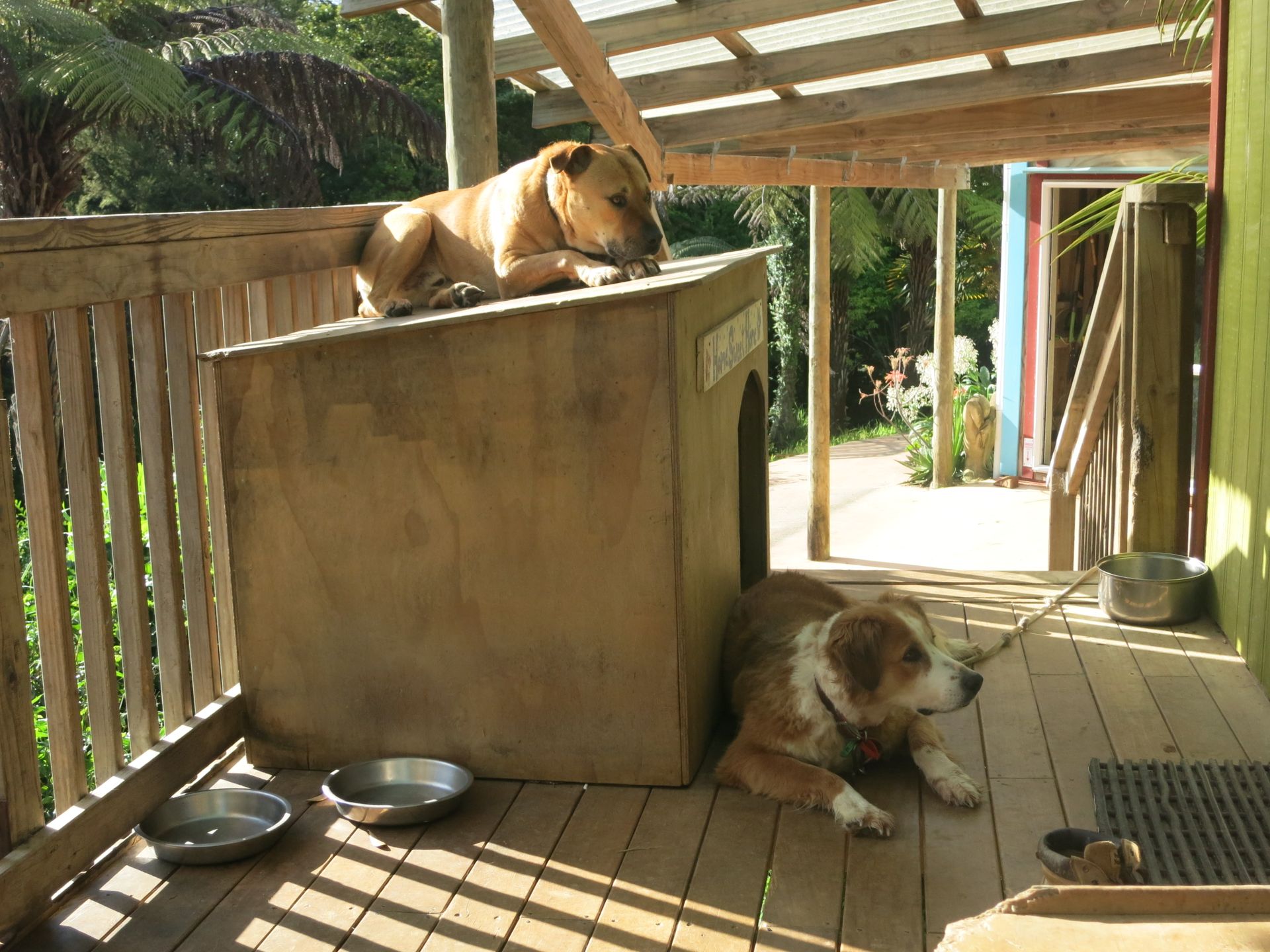
After we had stowed our luggage in the room, Mrs. J. showed us the house, her property (25 acres = 100,000 m², fortunately mostly undeveloped), her animals and the daily basic tasks. Properties are generally quite large here. In one Wwoofing offer, the area was even 2300 hectares, that's 23 km² *WOW*.
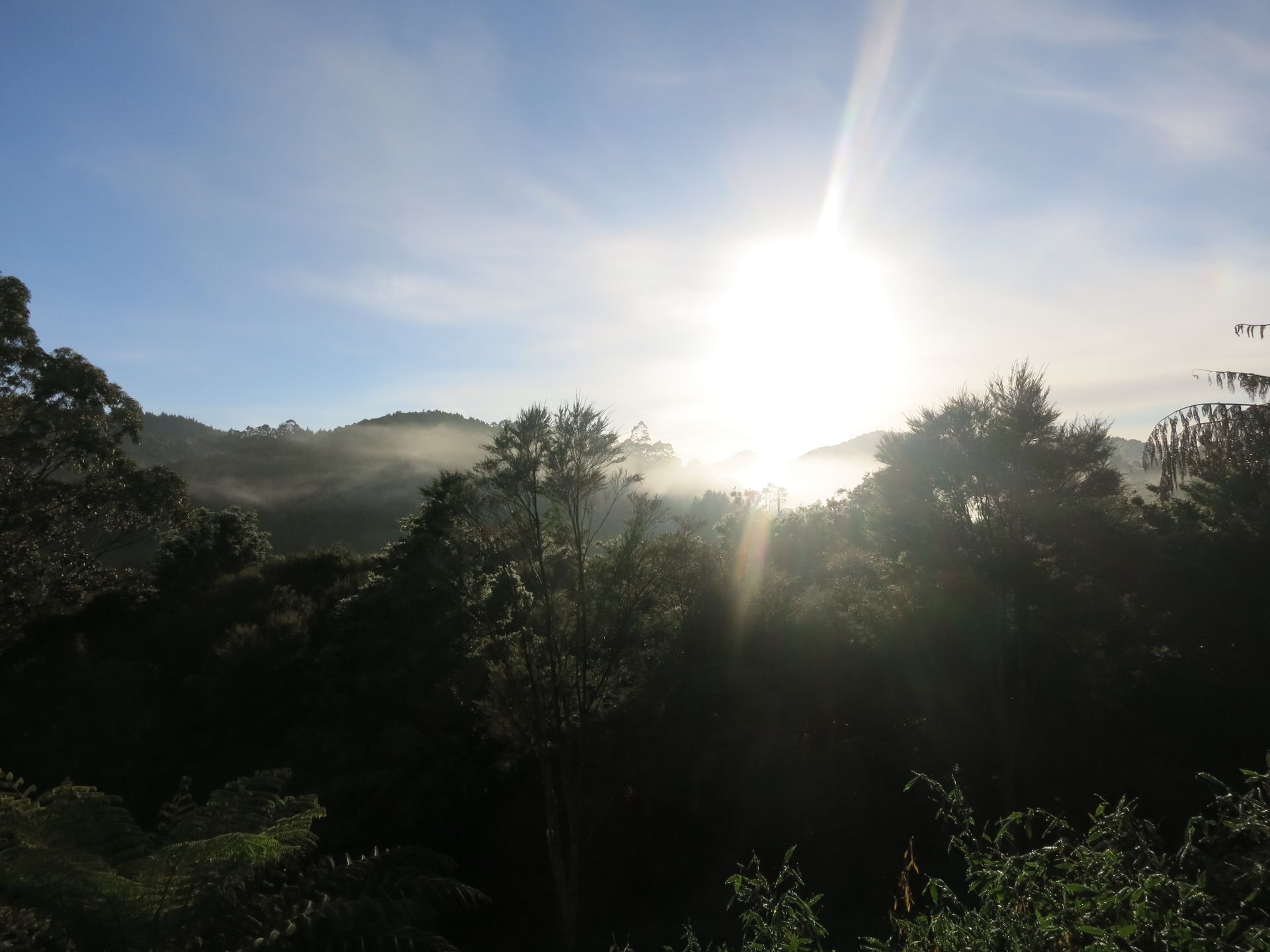
And now to the daily work. Mrs. J. was quite structured in that regard. Lists were kept and worked off daily. These even included time expectations for each task. The first three days were pretty tough. Five to six hours of work every day, mostly physically demanding. Additionally, we constantly had the dilemma of where to step our foot. The options were (sorted from bad to worse):
Hare - localized -
Goat - REALLY everywhere -
Chickens - have you ever seen that -
Dog - the piles were bigger than the animals on the picture -
Horse - don't live here, but we were allowed to touch them-
The tasks consisted of mowing the lawn with a brush cutter and then collecting it on a comfortable slope, digging four holes for future fruit trees, tending and restocking vegetable and herb beds, installing sun protection for the chicken coop, weeding, picking and preparing fruit for chutney processing, doing the dishes, and much more. All the animals also had to be taken care of daily. Among them was Willow the goat, who fulfilled all the cliches of a goat. This creature made sounds *what the hell* and Mrs. J. said that Willow even considers herself a real person :). Trying to move this animal was really amusing, especially for Caro, who immediately handed this task over to her partner. During our stay, we were also allowed to milk twice, and we actually had fun doing it, but with limited success.
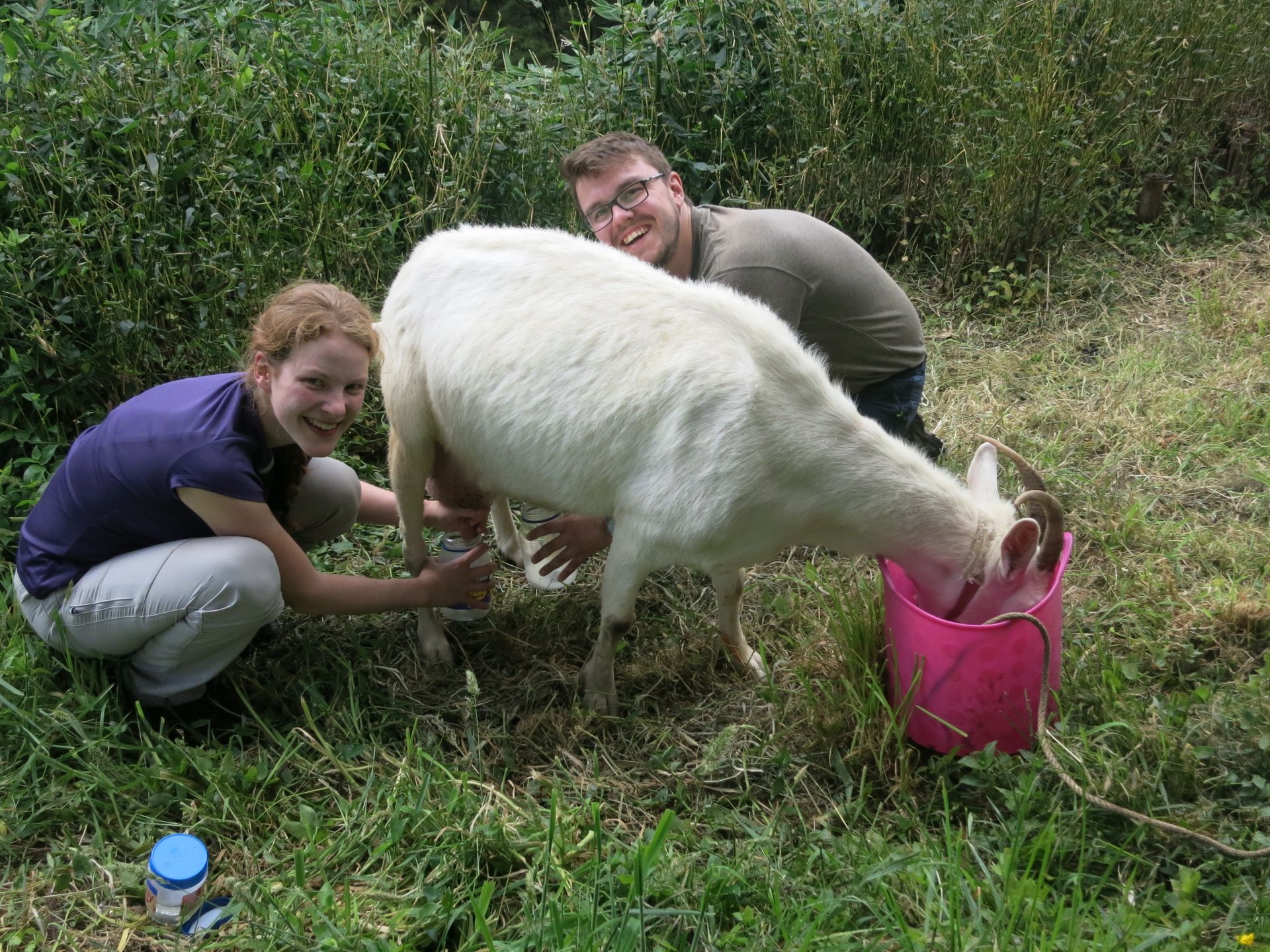
AND NOW PAY ATTENTION, this might already be one of the stories of the trip:
From the first day on, the neighbor's chickens were on the property and helped themselves to the foreign fruit (loquat, a fruit unknown to us until then and now one of Caro's new favorite fruits). Mrs. J. chased the chickens away energetically and then told us about an incident. Three weeks ago, the neighbor's chickens, as so often, were on her property. The dogs, which are trained to guard the grounds, noticed the intruders. Blade, the brighter one, chased the chickens onto the neighbor's property. Mrs. J., who always carries her baby on her back, ran after Blade to prevent anything worse from happening. The neighbor saw the situation getting out of control and threatened with shouting and a rifle. Mrs. J., who already had her dog on a leash, was already on her way back. In a de-escalating manner, the neighbor decided to let his dog out of the door anyway. The end of the story, the dogs fighting, bite wound on the mother's shin, luckily the baby was unharmed. Furthermore, Mrs. J. explained that she and her husband have already asked the neighbor several times to keep the chickens from entering the foreign property. So far apparently without success. So on the second day, when the neighbor's chickens once again nibbled on the forbidden tree, we observed an execution by small-caliber rifle with a silencer. Result: Neighbor's chickens -1. And as if that wasn't enough, the next day Mrs. J. also tried her luck, with her child on her back as well. But what do you do with a dead neighbor's chicken? Eat it? No, you put it in the hole dug by the Wwoofer, say a prayer, and then plant a new lemon tree on top, expecting the deceased life to give the future plant special strength.
Through this story, one can get an idea of the special worldview of the J. family. Understandably, after the first three days, we had our concerns. In addition, our evening free time was not varied at this point. Because at that time, the following path was not planned. Where should we go? What is our next stop? How do we get there? Will we run aground? Some smaller discussions sparked *zish* ;) This increased our insecurity to the point where we considered leaving this place prematurely.
But from the fourth day on, the situation relaxed. Our planning progressed (you'll see later), the conversations got better, and the mood brightened. We visited a playcentre, a kind of pre-kindergarten. This is supported by the state and is free for parents in exchange for some community hours. For us socialists, it was an opportunity to get to know early childhood education in a foreign country.
We realized that Mrs. J. had a clear idea of what tasks needed to be done during our stay. Thanks to our commitment in the first few days, this list had significantly shrunk. The tasks became easier, the workload lighter. We cooked together and got to know each other better. Now we felt comfortable.
And so it happened that
we were surprised during breakfast on the day before departure. No more
work was waiting for us, but a trip to the family's secret beach. 40 minutes driving time, a short walk, 30 dolphins swimming by...
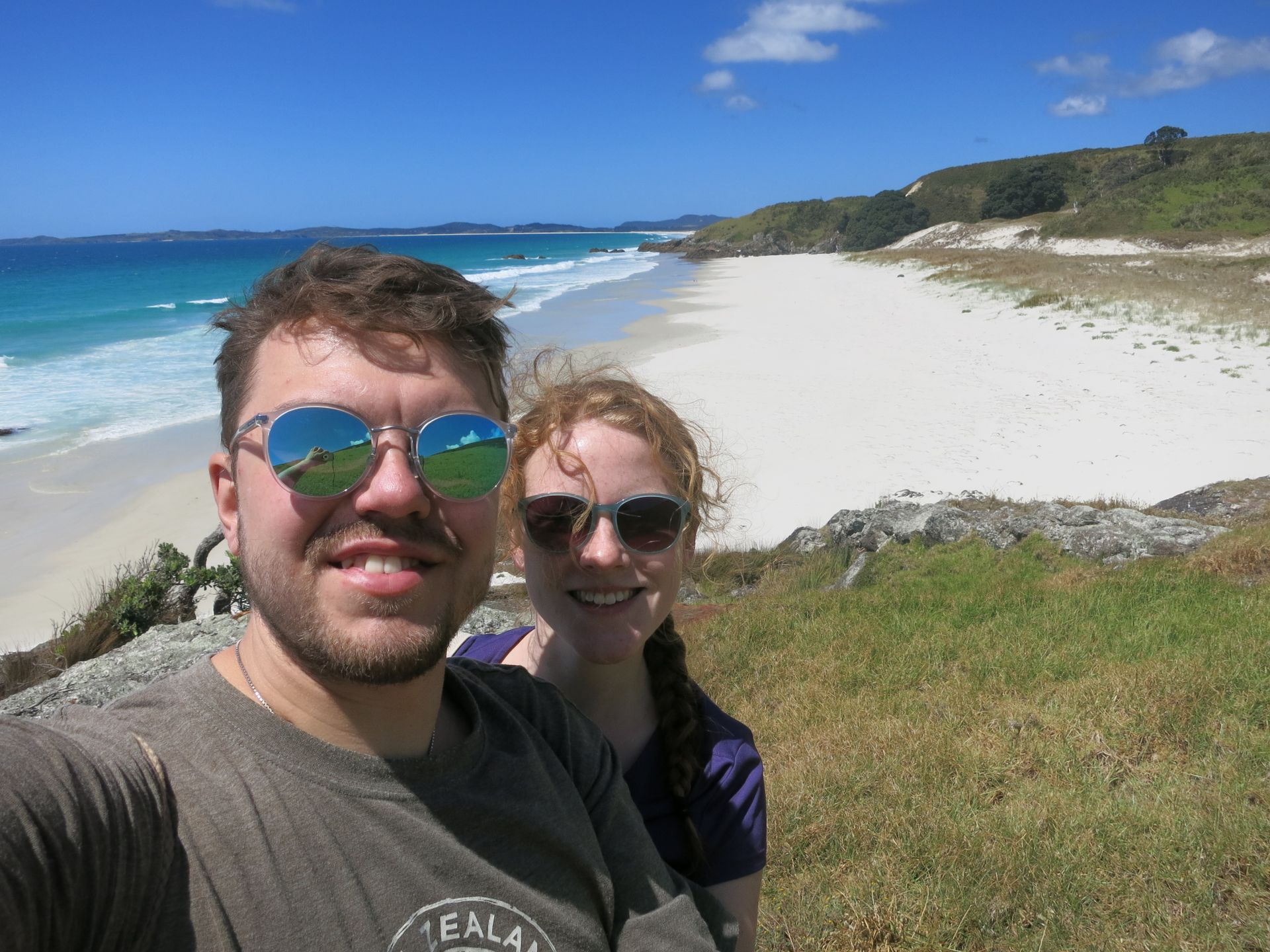
... An experience that was so unique for us that we can hardly describe it in words. White sand, perfect weather, great waves, and best of all, no one but the four of us is found at this spot on earth. Ask us about it when we're back in Germany.
Biyan kuɗi zuwa Newsletter
Amsa

Rahoton balaguro New Zealand
